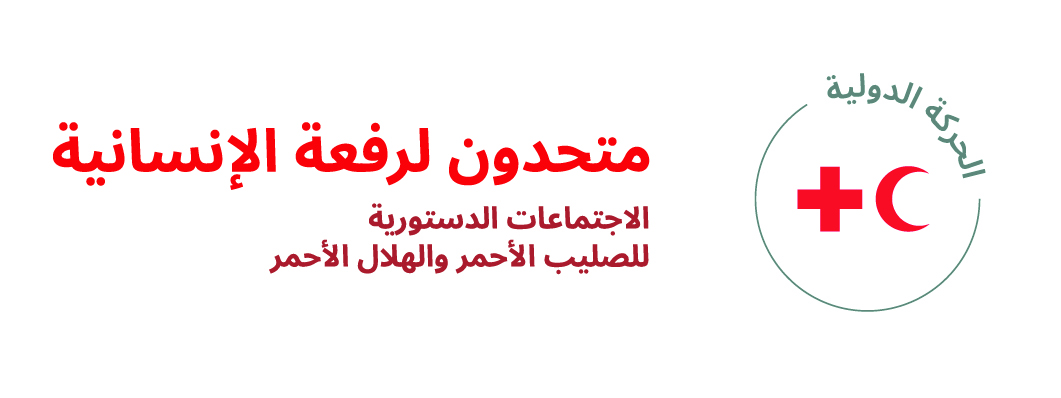أ) أهداف التعهد
Georgia is highly prone to natural hazards including earthquakes, floods, and landslides which pose recurring threats to public health and safety. In addition to natural disasters, the country continues to experience periods of civil unrest and conflict-related tensions that further challenge the resilience of communities and institutions. Despite notable improvements in health system reforms and expansion of primary health care services over the past decade, Georgia’s health system remains underprepared to manage the compounded impact of disasters and public health emergencies. Gaps persist particularly in community-level awareness, early response capacity, and risk communication in remote and vulnerable areas.
The need for structured, community-based disaster preparedness was clearly demonstrated by the GRCS-led project “Strengthening resilience of local communities of South Caucasus to health emergencies.” The initiative reached over 130,000 people through First Aid, PFA, WASH, and risk communication activities nationwide. It established sustainable local response networks, enhanced intersectoral coordination, and improved health emergency awareness and practices. The project’s success confirmed that empowering local actors significantly strengthens community resilience, even in resource-constrained settings.
At the same time, international assessments, such as the Joint External Evaluation (JEE) of the International Health Regulations (IHR) for Georgia, have pointed out systemic gaps in emergency risk communication, community engagement, and health service continuity during crises. These findings reinforce the critical need for coordinated public health and disaster risk reduction efforts between state and auxiliary actors like GRCS.[1]
In this context, it is vital for the Government of Georgia to receive continued support in strengthening community-based public health emergency preparedness—particularly through sustainable partnerships with the Georgia Red Cross Society, which is uniquely positioned to act swiftly and impartially across all regions of the country.
- A) Objectives of the Pledge
Main objective: Enhance local leadership and strengthen communities’ preparedness and early response to health emergencies, through volunteer-driven initiatives.
Specific objectives:
- Enhance community knowledge on public health emergencies.
- Increase community knowledge on water, sanitation, and hygiene (WASH) awareness and practice during emergencies.
- Ensure inclusive, evidence-based, and accountable community engagement in all phases of health emergency management.
ب) خطة العمل:
- Enhance Community Knowledge on Public Health Emergencies
- Organize awareness campaigns on pandemic preparedness, epidemic control, and public health risks.
- Develop and disseminate tailored materials for vulnerable and underserved groups, including ethnic minorities and those with low health literacy.
- Mobilize trusted local figures—such as educators, community leaders, and religious representatives—to support risk communication.
- Expand Access to First Aid and Emergency Preparedness
- Conduct cascade training for community volunteers on First Aid and Psychological First Aid (PFA).
- Organize community-level simulation exercises to strengthen emergency preparedness and response.
- Support national efforts to improve First Aid regulation and coordination through participation in multi-stakeholder platforms.
- Collaborate with authorities to identify and address gaps in First Aid legislation, training, and public access.
- Strengthening Psychosocial Support Awareness at the Community Level (PSS)
- Build volunteer and staff capacity to provide PSS services in line with IFRC PS Centre standards.
- Deliver community-based psychosocial support before, during, and after emergencies.
- Establish and map referral pathways to ensure access to specialized mental health care where needed.
- Improve WASH Awareness and Emergency Readiness
- Conduct WASH promotion campaigns focused on safe hygiene practices and waterborne disease prevention.
- Engage community volunteers to gather feedback and adapt hygiene messaging to local needs and contexts.
- Promote Inclusive Community Engagement and Volunteerism
- Maintain and expand a trained volunteer network to support localized health emergency responses.
- Strengthen two-way feedback systems to inform responsive, accountable, and community-driven programming.
- Ensure meaningful participation of women, youth, displaced persons, and persons with disabilities in local health planning and decision-making.
- Support Coordination and Advocacy
- Coordinate with national and local authorities to align emergency response efforts and facilitate joint planning.
- Advocate for formal recognition and integration of GRCS’s auxiliary role in public health emergency frameworks.
- Participate actively in inter-agency coordination mechanisms to promote harmonized and complementary approaches.
ج) مؤشرات قياس التقدم المحرز
- The number of people reached through First Aid, PSS, WASH, and Health in Emergency awareness activities.
- Number of GRCS volunteers trained and actively engaged in First Aid, PSS, WASH and Health in Emergency health activities.
- Number of simulation exercises organized.
- Number of stakeholder consultations supported or attended by GRCS
- Functionality and responsiveness of community feedback systems across target areas.
د) الآثار المترتبة على الموارد:
The pledge implementation will rely on a diversified support strategy including:
- Domestic resources (where available).
- Support from Red Cross and Red Crescent Movement partners.
- External Donor funding.
We will explore potential collaboration with humanitarian and development actors and local governance structures to ensure sustained delivery and long-term integration of adaptation actions.



